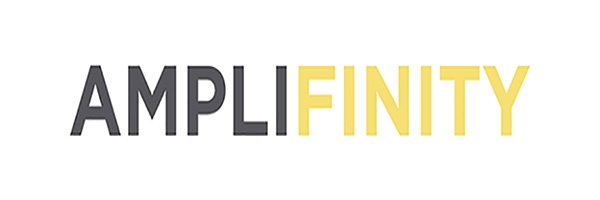New Data Report on the State of Referral Partners Uncovers Greater Growth Opportunities
— August 3, 2017

Amplifinity, a leader in referral program software, today announced the publication of a new data report on partner referral programs, The State of Business Partner Referral Programs – Annual Report.
The State of Business Partner Referral Programs – Annual Report, is the first report of its kind to provide detailed insight into the success of partner referral programs. The data is aggregated from partner referral programs run on the Amplifinity platform.
This first annual report sets an industry benchmark for partner referral behavior, how partners are making referrals and the corresponding conversion rates. Reward types and amounts were also analyzed as well as the impact of sales involvement in driving partner recruitment and referrals.
An interesting data point for channel marketers is the average partner referral conversion rate from lead to deal of 31%. This is a drastic increase over the partner lead industry average of 0.48% and the referral industry average of 3.63% according to a study done by Salesforce’s Implisit.
But this didn’t surprise Trisha Winter, CMO of Amplifinity, “It is actually quite reasonable to me that partner referrals taking place on the Amplifinity platform resulted in such a higher conversion rate than the partner lead industry average. When companies have the ability to enable partners with target buyer information while automating referral tracking, communications, and incentive fulfillment it’s easy to see how partner referral volume and quality would sky rocket compared to ad hoc partner leads.”
Kathy Contreras, Research Director for Channel Strategies at SiriusDecisions commented, “Partner referral programs can be used in any industry and offer a way to motivate and reward partners for identifying and registering new leads. This type of partnership [referral partners] provides the opportunity to align with organizations that have strong relationships with a supplier’s target buyers, but are not interested in or qualified to resell the supplier’s offerings (e.g. suppliers that provide collaborative solutions, systems integrators, consultants, influencers, etc).”
Another promising data point was the impact of sales involvement on the conversion rate of partner referral leads. Partner referral leads from programs with sales involvement showed an increase from the overall average referral to deal conversion rate to a 41% success rate.
“It was encouraging to see the data supports the concept that channel professionals already know – personalized engagement of partners and their leads improves conversion,” says Winter. “Channel marketing can drive some activity, but sales is in a perfect position to both recruit and engage partners to make referrals. This concept also can be linked to why social media was the second most used referral method but had no success according to the data.”
As the first annual report, Winter believes it will be used widely to understand new opportunities to achieve growth objectives in an ever changing market and as a benchmark for companies already running partner referral programs. “The partner ecosystem is undergoing a shift to a largely SaaS based offering, which is especially impacting the technology and telecom space. Along with this there is a need in every industry to scale partner operations, prove reseller productivity and fit, and grow leads from non-reseller partners. I’m glad that Amplifinity can provide this benchmarking partner referral data. It will be interesting to see how other partner focused companies align and respond to it.”
To get more insight, download the full analysis, The State of Business Partner Referral Programs – Annual Report.
Business & Finance Articles on Business 2 Community
(17)













